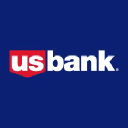Best Banks for Small Business in February 2026

Chase for Business
- Wide range of business credit cards
- Extensive branch and ATM network
- Free business checking options
- Online and mobile banking with various integrations

Wells Fargo Business Banking
- Various business loans and lines of credit
- Merchant services integration
- Payroll services
- Access to financial advisors

U.S. Bank Business Banking
- Comprehensive suite of business credit cards
- Various payment processing solutions
- Multiple business checking account options
- Specialized services for small businesses
In the ever-evolving landscape of small businesses, choosing the right bank is crucial to your financial success and stability. With numerous factors to consider, making an informed decision can set the tone for your business's growth and manageability. This guide will explore the critical aspects of selecting a bank for your small business, helping you make a choice that aligns with your business needs and goals.
Understanding Your Business Needs
Analyzing Cash Flow Requirements
Before diving into the specifics of what banks offer, it is vital to understand your business's cash flow requirements. Determine if your business handles a substantial volume of transactions or if you maintain higher average balances. This assessment will guide you in finding a bank that aligns with your financial habits, ideally offering features like unlimited transactions or waived fees for maintaining a certain balance.
Identifying Necessary Financial Products
Different businesses have distinct financial needs. Consider what banking services are essential for your business, such as lines of credit, merchant services, or mobile banking capabilities. Identifying these needs early in the process makes it easier to filter banks that offer the necessary products tailored to your business model.
Key Features to Look for in Banks
Fee Structures and Transparency
Banks have varying approaches when it comes to fee structures. Some banks offer low or no monthly fees, while others require a minimum balance to avoid charges. Transparency is essential, so you'll want to find a bank that is upfront about fees associated with account maintenance, transactions, wire transfers, and ATM usage.
Accessibility and Convenience
Consider the bank's accessibility, such as the proximity of physical branches and ATM availability. Online and mobile banking capabilities are equally important, particularly if you prefer managing finances digitally. Ensure the bank you choose provides robust digital platforms that are user-friendly and meet your expectations.
Customer Support and Relationship Management
Good customer service can significantly impact your banking experience. Look for banks that offer dedicated relationship managers to assist with your account. These professionals can provide invaluable advice and support, especially if you encounter any financial complexities or require personalized solutions.
Evaluating Financial Strength and Reputation
Stability and Security
The financial stability of a bank is a critical factor when entrusting them with your business funds. Research a bank's financial health through credit ratings and capital adequacy ratios. Additionally, banks that are FDIC-insured offer added security for your deposits, providing peace of mind that your money is protected.
Reputation and Customer Reviews
Consider the bank's reputation within the business community. Leverage online reviews and testimonials to gather insights from other small business owners regarding their experiences. A bank with positive reviews is often indicative of solid customer service and reliable banking products.
Conclusion: Making the Right Decision
Choosing the right bank for your small business involves much more than opening an account; it's about fostering a financial partnership that supports your business's growth. By carefully considering your business needs, evaluating the features and support offered, and researching financial stability and reputation, you can make a well-informed decision. Ultimately, the best bank for your small business is one that aligns with your financial goals, enhances your operations, and provides comprehensive support as you navigate the challenges of small business ownership.
